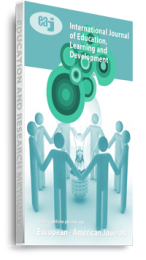The study investigated the effects of traditional instruction, cooperative learning jigsaw II and cooperative learning Student Team Achievement Division (STAD) Models on students’ learning experience and achievement in mathematics. The study analyzed differences in students’ scores on learning experience and differences in mathematics Achievement under the three mentioned experimental conditions. One hundred and Twenty SS II students selected from ten Senior Secondary Schools in Etche and Omuma Local Government Areas of Rivers State using the proportionate stratified random sampling technique constituted the sample for the study. Repeated measures ANOVA design was used for the study. Thirty intervention lessons (ten in each condition) were delivered during the six months intensive class lessons. Learning experience measure and Achievement test in mathematics were administered at the end of each phase. The results of the repeated Measure Analysis of variance (ANOVA) showed significant differences between students scores on learning experience measure across three experimental conditions. Similarly the ANOVA results also reveal that there was a significant difference in achievement scores in favour of the cooperative learning conditions. Finally cooperative learning enabled learners to receive positive feedback from the process of thinking, enhances students’ academic achievement better than the traditional instruction and promotes group interactive learning experience. It is therefore recommended among others that to encourage teachers who want to implement cooperative learning in their regular classroom lessons, workshops should be organized where the benefits of cooperative learning strategy will be showcased.
Keywords: Achievement, Cooperative learning, STAD Model, Traditional instruction, jigsaw II Model, learning experience measure

